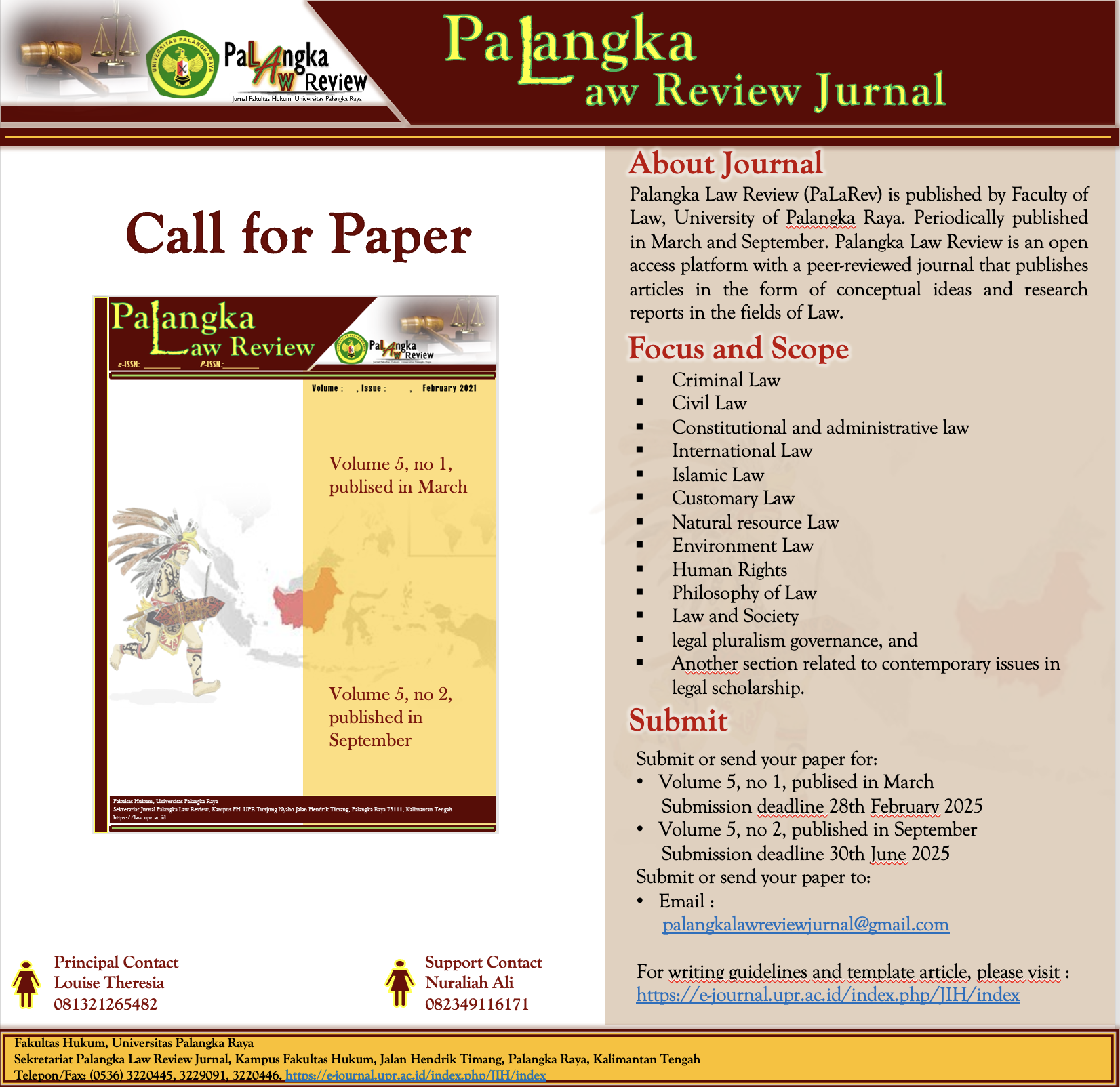| MAIN MENU | |
| PUBLICATION ETHICS | |
Viewers
Palangka Law Review (PalaRev) has been indexed by:
| Journal title | Palangka Law Review |
| Frequency | 2 issues per year |
| DOI | prefix 10.52850 |
| Print ISSN | - |
| Online ISSN | 2776-4605 |
| Editor-in-Chief | Louise Theresia |
| Publisher | Faculty of Law, Palangka Raya University, Central Kalimantan, Indonesia |
| Citation Analysis | Dimensions |Google Scholar | Sinta Score |
Palangka Law Review (PalaRev) is a peer-reviewed journal published by the Faculty of Law, Palangka Raya University, Central Kalimantan, Indonesia. PalaRev is published twice a year in March and September available in the electronic and printed version. Hence, we welcome submission papers in English or Indonesian language.
This journal provides immediate open access to its content on the principle that making research freely available to the public supports a greater global exchange of knowledge.

Publisher: Faculty of Law, Palangka Raya University, Central Kalimantan, Indonesia.

This work is licensed under a Creative Commons Attribution 4.0 International License.
